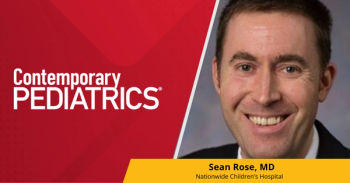
One type of food allergy may trigger another
Having had an immunoglobulin E (IgE)-mediated allergy to a specific food may predispose children to another, more dangerous type of allergy to the same food.
Having had an immunoglobulin E (IgE)-mediated allergy to a specific food may predispose children to another, more dangerous type of allergy to the same food.
Results of a
Researchers from the
However, a subgroup of 17 children developed EE to a food after outgrowing an IgE-mediated allergy to the same food. The investigators noted that although the 2 types of food allergies seem to have distinct pathophysiologies, IgE-mediated food allergies might predispose children to developing EE to the same food. Once children develop EE, they often don’t develop a tolerance to the food that triggers it.
According to the
To get weekly clinical advice for today's pediatrician,
Newsletter
Access practical, evidence-based guidance to support better care for our youngest patients. Join our email list for the latest clinical updates.






